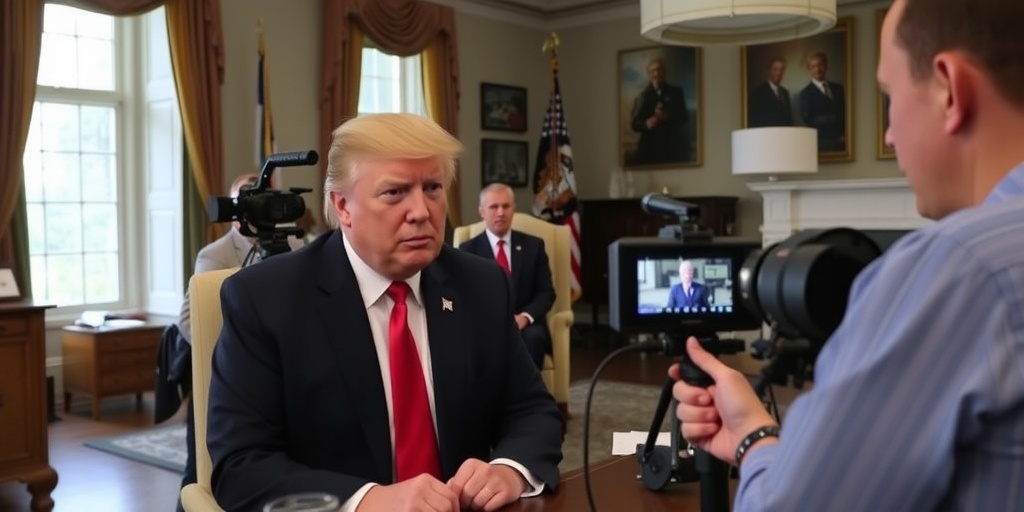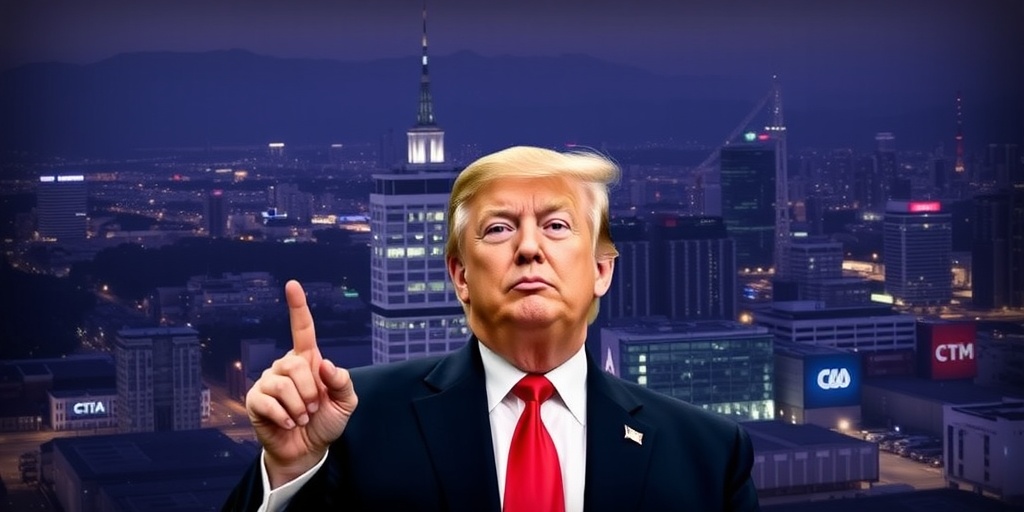Now Reading: Trump Aims for Greater Influence in Kennedy Center Honors Selection
-
01
Trump Aims for Greater Influence in Kennedy Center Honors Selection
Trump Aims for Greater Influence in Kennedy Center Honors Selection
Trump Seeks Greater Control Over Kennedy Center Honors
In a significant shift from past practices, former President Donald Trump is aiming to exert more influence over the Kennedy Center Honors program during his second term. Following a history of tensions with the arts community, including boycotts during his first term, Trump appears intent on reshaping the honoree selection process to better align with his vision. According to individuals familiar with the discussions, Trump, who now serves as the chairman of the Kennedy Center, has proposed changes that would grant him increased authority over the advisory committee responsible for selecting honorees.
Traditionally, the Kennedy Center has maintained a policy of independence when selecting its honorees since 1978, avoiding any direct interference from the White House. Throughout its history, the institution has recognized a diverse range of artists, including icons like Lucille Ball, Clint Eastwood, and Dolly Parton at its annual gala, which is televised and celebrated as an iconic event in the arts community.
However, Trump’s approach marks a departure from this norm. He has removed all Biden-era appointees from the center’s previously bipartisan board, installing a loyal ally, Richard Grenell, as president. The board is scheduled for a meeting on Monday afternoon, where a resolution that could revolutionize the selection process will be discussed. This resolution stipulates that members of the honors advisory committee would be appointed by the board’s chairman—Trump himself—and serve at his discretion, effectively placing the selection of honorees under his control.
The potential implications of these changes are substantial. The advisory committee, which is responsible for proposing honorees, would now operate under the direction of Trump, giving him unprecedented power to decide who receives this significant recognition for lifetime artistic achievement. Previously, committee membership was determined based on recommendations from a variety of stakeholders, including former honorees and artists. The 2024 committee featured renowned figures such as Gloria Estefan and Lionel Richie, reflecting a blend of artistic talent and public opinion.
Despite speculation regarding Trump’s intentions for the honors program, his approach hints at a desire to prioritize figures aligned with his administration’s viewpoints. Since the beginning of his second term, he has reached out to controversial figures in Hollywood, such as Mel Gibson and Sylvester Stallone, to serve in roles that signify a closer tie between his political ambitions and the entertainment industry.
Grenell, in a statement, expressed that the financial predicament at the Kennedy Center has been a long-hidden issue, and that Trump’s leadership aims to stabilize the institution by attracting a broader audience. Critics, however, see this as part of a broader initiative to inject conservative values into American culture.
Trump’s complicated relationship with the Kennedy Center isn’t new. In 2017, following criticism from artists honored during his first term, he famously boycotted the Kennedy Center Honors, a move that broke with longstanding tradition. Alongside artists who threatened to boycott receptions at the White House, Trump’s absence marked a strained rapport with the arts community that has only intensified.
As Trump continues to criticize what he labels "woke" ideologies in the arts, he has openly promised to steer the Kennedy Center toward a renewed commitment to American values and traditions. This encompasses plans for celebrations that reflect a distinct cultural identity, such as a large event commemorating Christmas, as indicated by Grenell.
These efforts have not been without controversy. Artists and patrons have vocally opposed Trump’s maneuvers, with notable figures like actress Issa Rae and musician Rhiannon Giddens canceling their engagements at the Kennedy Center in protest. Furthermore, the musical "Hamilton" announced the cancellation of its planned tour at the center, reflecting a broader backlash against Trump’s influence.
Recently, Vice President JD Vance and second lady Usha Vance, both Trump appointees to the board, were booed during a concert by the National Symphony Orchestra. This illustrates the palpable tension and division surrounding Trump’s leadership at the Kennedy Center, as artists and audiences alike grapple with the shifting values represented by the administration’s actions.
As the Kennedy Center moves forward, Trump’s push for greater authority over its cultural legacy signals a significant potential shift in American arts, underscoring the intersection of politics and culture in contemporary society. The coming weeks will be crucial in determining how Trump’s vision will impact the future of the Kennedy Center Honors and the broader artistic community.
Stay Informed With the Latest & Most Important News
Previous Post
Next Post
-
 01New technology breakthrough has everyone talking right now
01New technology breakthrough has everyone talking right now -
 02Unbelievable life hack everyone needs to try today
02Unbelievable life hack everyone needs to try today -
 03Fascinating discovery found buried deep beneath the ocean
03Fascinating discovery found buried deep beneath the ocean -
 04Man invents genius device that solves everyday problems
04Man invents genius device that solves everyday problems -
 05Shocking discovery that changes what we know forever
05Shocking discovery that changes what we know forever -
 06Internet goes wild over celebrity’s unexpected fashion choice
06Internet goes wild over celebrity’s unexpected fashion choice -
 07Rare animal sighting stuns scientists and wildlife lovers
07Rare animal sighting stuns scientists and wildlife lovers



















